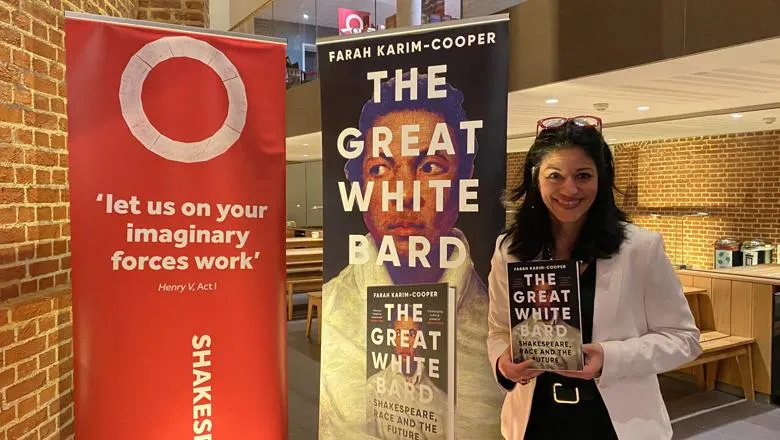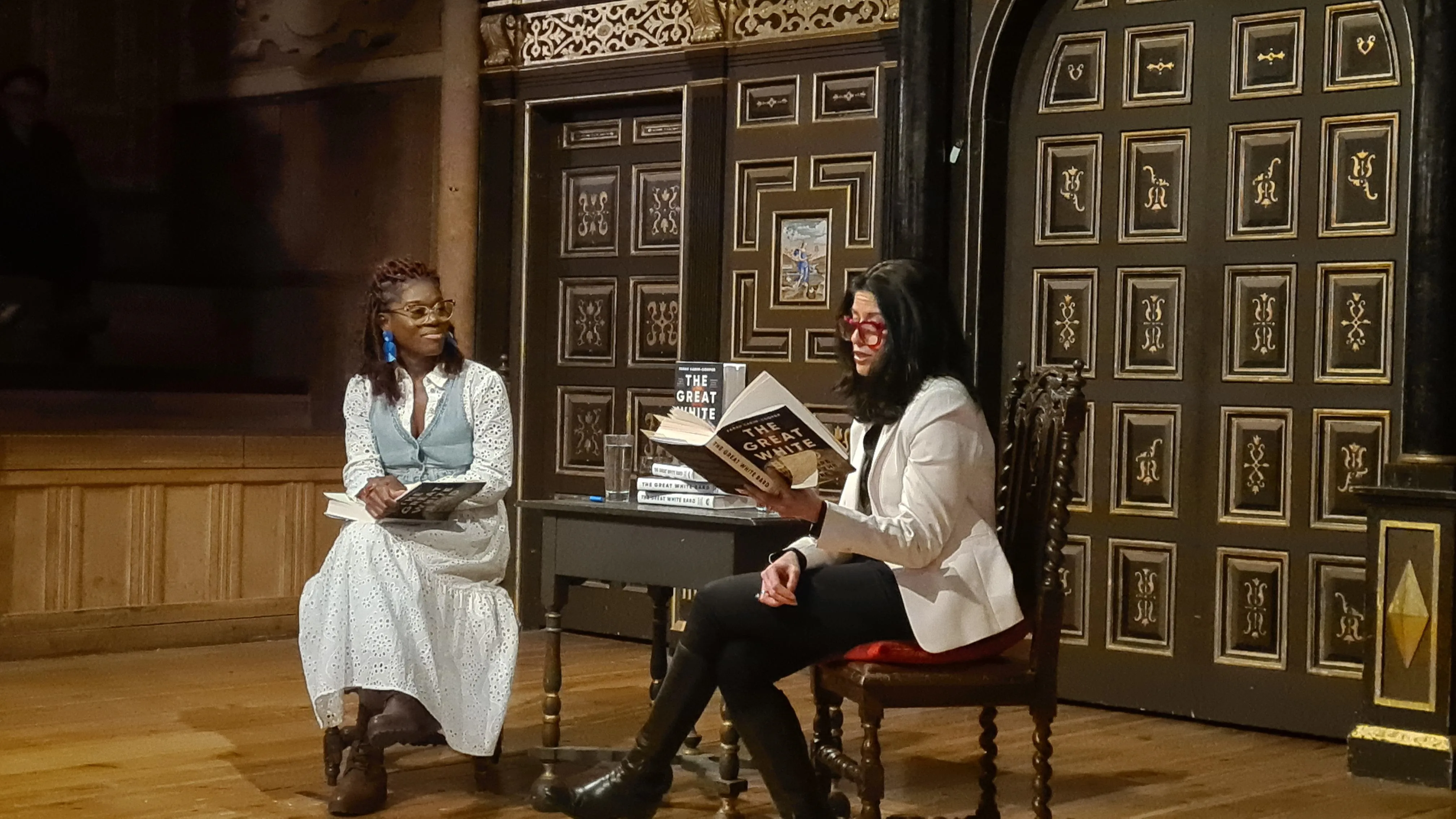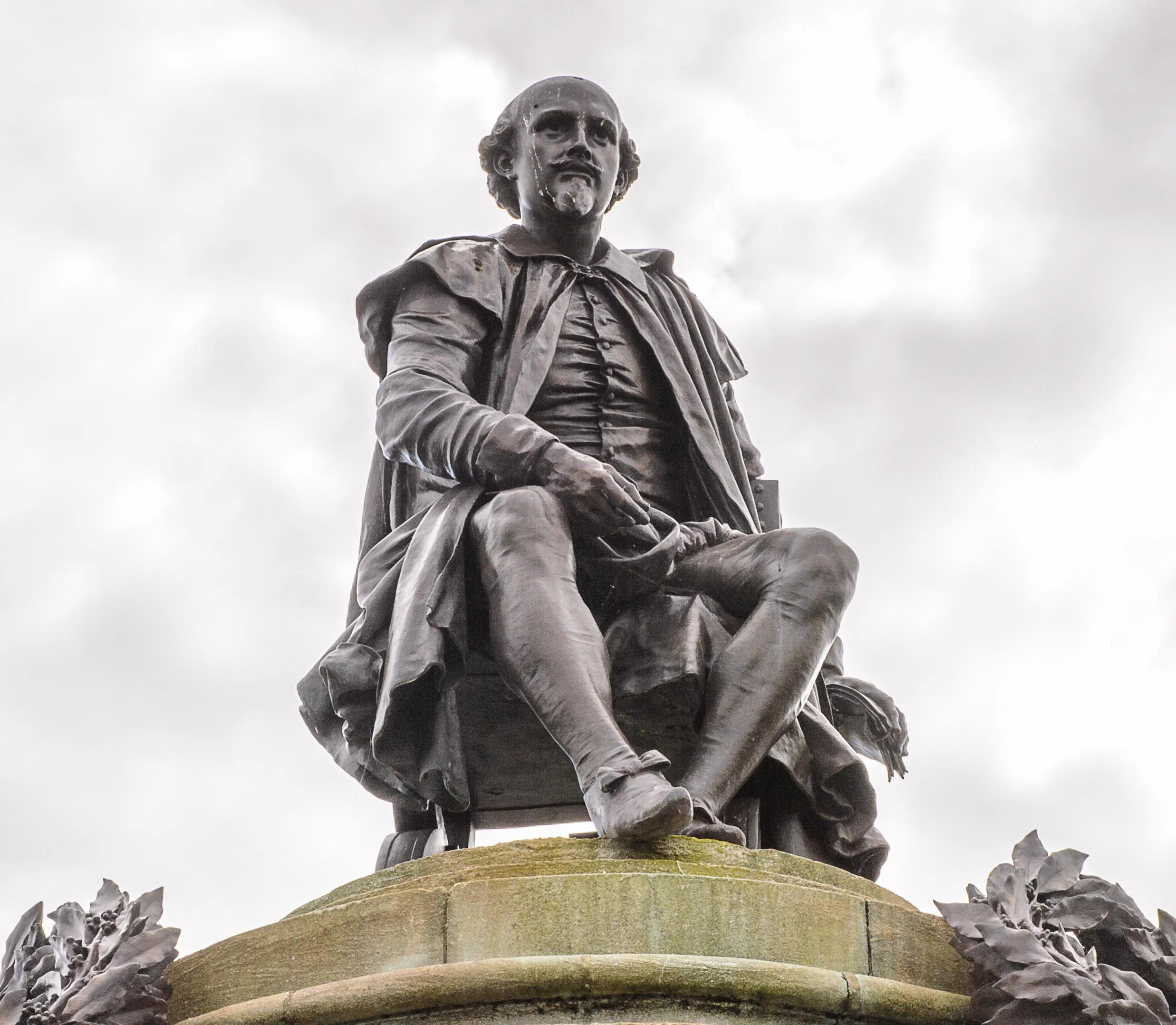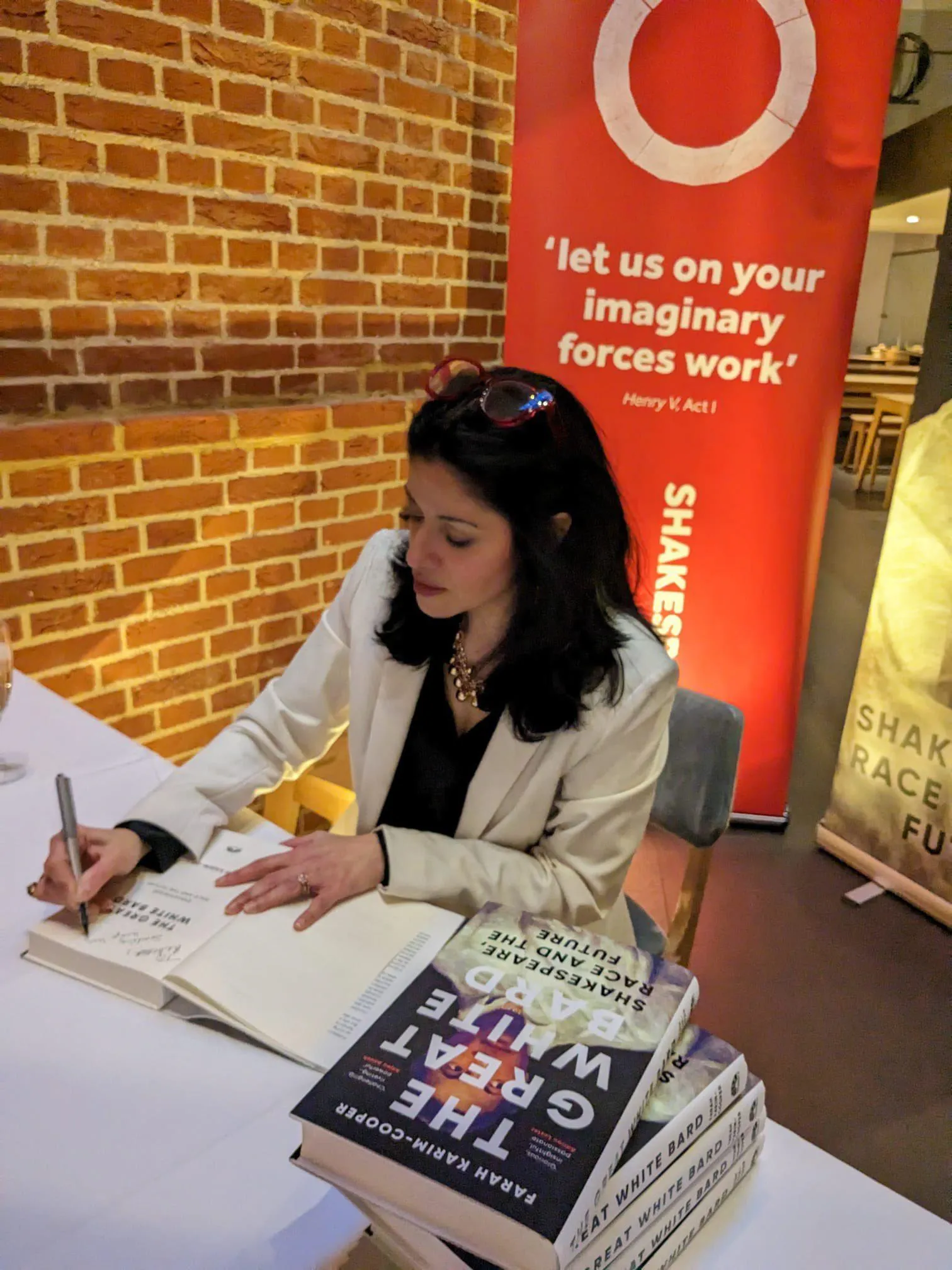'There are two types of criticism. One that is rooted in genuine curiosity, where people do not understand what Shakespeare has to do with race. Thinking that race wasn’t around until the 18th century largely comes from a lack of historical education about the fact that race has always been part of the vocabulary in Europe. The Globe does not mind engaging with this and helping people understand. And then there is another kind of criticism by people who do not engage with the Globe and, probably, do not really read Shakespeare. It comes from a very right-wing, sometimes even white supremacist angle. Some find it very insulting that an icon of British culture is being interrogated, particularly by people of colour. Racism exposes itself very, very quickly, and the Globe tries not to engage in that debate, where one side is not interested in what we have to say anyway, they just want to yell on Twitter'.
Professor Farah Karim-Cooper
27 April 2023
'Nobody is entitled to Shakespeare just because of the colour of their skin' – Professor Farah Karim-Cooper
A new book - The Great White Bard - by Professor of Shakespeare, Farah Karim-Cooper reveals how rethinking Shakespeare might help us rediscover a playwright, relevant in the twenty-first century.

Speaking to King’s, Professor Farah Karim-Cooper reveals how rethinking Shakespeare might help us rediscover a playwright, relevant in the twenty-first century.
Back in 2018, Professor Farah Karim-Cooper ran the first Shakespeare and Race festival at Shakespeare’s Globe. A public-facing week-long event that included readings, performances, round-table discussions, and workshops aimed at 'highlighting the importance of race in the consideration of Shakespeare – not only in his time but just as urgently, in our own'. It was ‘less controversial then, as it seems to be now – for some reason’, she tells King’s ‘Something must have happened’.
As part of that festival, Professor Karim-Cooper reached out to scholars of colour to speak about their work at the Globe. However, most of them had to be invited from elsewhere – very few were based in the UK, and there were no Black Shakespeare professors to speak of employed full-time in UK universities.
'I found the public response a little bit shocking too. Certain people were asking – what does Shakespeare have to do with race? So, I felt like it was time to write a public-facing general readership book about this topic, to introduce people to that world so that they would be able to find ways of opening up Shakespeare and seeing that nobody is entitled to him just because of the colour of their skin'.

That work culminated in The Great White Bard – a new book published by Oneworld Publications on 27 April 2023 that ‘combines piercing analysis of race, gender and otherness in beloved plays from Othello to The Tempest with a radical reappraisal of Elizabethan London’.
Working at the Globe for almost 20 years, Professor Karim-Cooper has seen many people worship Shakespeare as the pinnacle of the white Western canon. The Great White Bard, on the other hand, encourages people to read the playwright on their own terms.
'I think it is time to look Shakespeare in the eye and say there are some plays that have anti-Black or anti-Semitic language in them. How do we grapple with such a national treasure and look at the difficulties and challenges of his work while keeping him as part of the cultural landscape? The book tries to find tools and ways through that so that we do not have to discard Shakespeare just because he might be offensive, but instead, when we investigate and interrogate Shakespeare, we build a relationship with him that is more equal and more gratifying'.
Historical figures like William Shakespeare are often considered sacrosanct, and any attempt to view them critically, therefore, can be met with hostility. The Shakespeare and Race festival was no exception when a trolling and bullying campaign on social media targeted Professor Farah Karim-Cooper and other organisers of the festival.
In the Great White Bard, Professor Karim-Cooper finds evidence that Shakespeare was illuminated further as an iconic author in the 18th century and gained more popularity, primarily – Professor Karim-Cooper says – through the lens of maritime supremacy. The British Empire was becoming wealthier due to colonialism and the transatlantic slave trade and in trying to re-establish themselves as connoisseurs of art and culture – Shakespeare was being sanctified in a way that he had not been before. The image of a literary giant with a statue of him in Westminster Abbey was crafted through the ‘white lens’ and opposed to Shakespeare a playwright, who made theatre. This canonised version of Shakespeare, according to Professor Karim-Cooper, is still very much with us everywhere, except for the academic circles, where a critical approach to Shakespeare has become more common.
'It is the public perception of Shakespeare which needs to shift so that people can see that there is space for more than just whiteness in Shakespeare. My book draws attention to the fact that Shakespeare very explicitly talks about raced characters. Othello, Cleopatra, Aaron the Moor, and Caliban are explicitly aware of their difference, and they talk about it. We can decide later if Shakespeare was racist or not – I do not think that is something we will ever be able to determine. But what he is doing is making space for different kinds of bodies in his storytelling'.

There has been a misconception in history about the importance of Shakespeare's moment, Professor Karim-Cooper says. Protocolonial ambitions of Elizabeth I’s government, the English slave trade rivalry with Spain and Portugal, as well as the increase of travel, exploration and trade with Africa were happening during Shakespeare’s time. The Europeans were encountering people from different nations and had to establish a vocabulary to think about their differences.
'The idea of racial formation is taking place in Shakespeare's time. Many academics argue that it was happening even before that, in the Middle Ages or even in the classical period, where there is evidence of ways, templates and frameworks for thinking about difference and superiority versus inferiority. The idea of Blackness is becoming much less metaphorical in Shakespeare's time and is attaching itself to identity. We also know that in his time that there was a significant number of Black people living in England. This is a history that had been silenced for many, many years. And so, Shakespeare is interrogating this and looking at what happens when the difference is objectified in certain ways. I do believe that he and his time are grappling with many of the same questions we have today'.

Together with the Globe, King’s College London is working on amplifying the voices of scholars and artists of colour in Shakespeare studies, particularly when it comes to the issues of race and social justice. The Shakespeare Centre London is a development of two decades of successful collaboration between King’s and Shakespeare’s Globe. The Centre aims to increase participation in Shakespeare studies from underrepresented communities and to establish a more inclusive approach to studying and researching Shakespeare in order to bring more diversity into the field.
'A majority of Shakespeare scholars of colour work in the field of premodern critical race studies. There is a certain amount of activism attached to it – this field has been marginalised consistently for over three decades, seen as not necessarily legitimate by the white academia. There has been a lot more motivation to try and push this field into being a central way of thinking about Shakespeare. At Shakespeare Centre London, we have several PhD students, who are students of colour. I am seeing an increase in that, and it is exciting. The field of Shakespeare studies might look different in 5 or 10 years, but right now, we are not anywhere near where we need to be'.
Speaking about the long-term impact of her work in Shakespeare studies, both in research and education, Professor Farah Karim-Cooper hopes that more people will discover the real diversity of Shakespeare's England and feel more relaxed seeing a Black Henry V or a Black Hamlet on stage, rather than finding it cognitively confusing or offensive.
'I am hoping that the general public will feel that Shakespeare is more accessible to as many people as possible. It is also an opportunity for people of colour or those from disadvantaged backgrounds to think that there is room for them in Shakespeare studies and performance. Instead of worshipping the canonised-18th-century-very-white Shakespeare, my book is asking people to take him down from the plinth and look him in the eye'.
The Great White Bard was published by Oneworld Publications on 27 April 2023.
